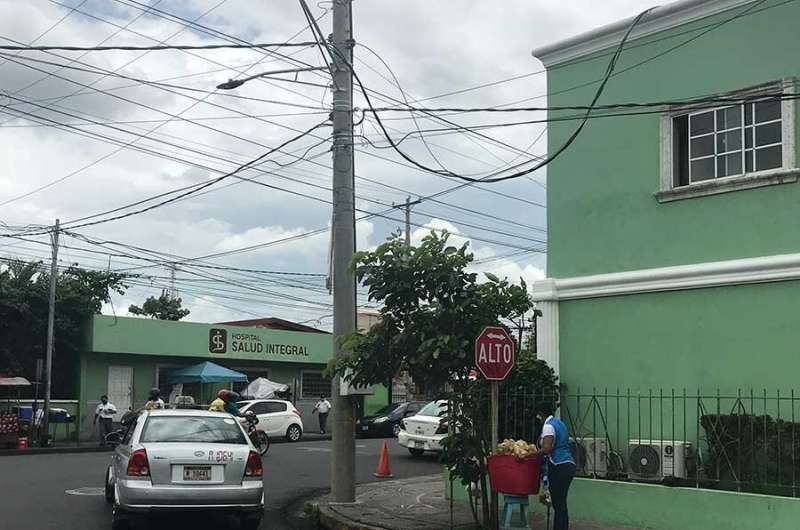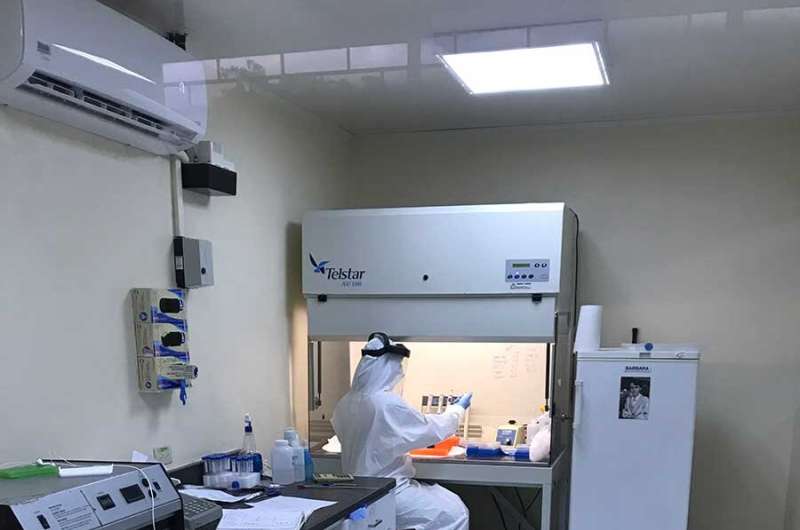First glimpse of pandemic's impact on healthcare workers in Nicaragua, a country where secrecy reigns

By summer 2020, well into the COVID-19 pandemic, Nicaragua's hospitals were full of patients with respiratory infections. Doctors and nurses were dying. The health system was collapsing.
Yet the government has consistently downplayed the COVID-19 pandemic. Health care workers lack appropriate personal protective equipment (PPE), such as masks, gloves and gowns. Access to testing is rare. Businesses have remained open, and the government holds events with large crowds.
The true extent of the coronavirus crisis remains unknown in Nicaragua.
"It's been kind of surreal," said Jorge Huete-Pérez, senior vice president and director of the Molecular Biology Center at University of Central America in Managua, Nicaragua.
"On one hand, we would hear about the many COVID-19 deaths in Europe and the U.S. and lockdowns all over world, including in our neighboring countries, and yet in Nicaragua we had the authorities telling us that everything was under control and that COVID-19 was a problem only for foreign people. They have opted for a policy of denial and secrecy, which in the end has only exacerbated the crisis."
Huete-Pérez and other scientists have done their best to counter their government's lack of information and action. From the beginning, they knew the pandemic was serious, particularly given that a large portion of Nicaragua's population lives in poverty and in overcrowded spaces. They urged people to stay home.
Eventually, the crisis motivated a group of Nicaraguan researchers to investigate the real situation, particularly for those perhaps at greatest risk—health care workers.
Huete-Pérez shared his frustrations with an old friend and colleague: Dr. James McKerrow, dean of Skaggs School of Pharmacy and Pharmaceutical Sciences at UC San Diego. The two had worked together many years earlier to study Chagas disease, a parasitic infection that is the leading cause of heart disease in South America.
"I thought something needed to be done," McKerrow said.
In June 2020, Huete-Pérez and McKerrow began collaborating to collect and analyze data on the rates of COVID-19 infection among Nicaraguan health care workers.

They discovered that a study conducted relatively easily in most countries was notably complicated in Nicaragua. One of the study's co-authors was fired for voicing concern about the failed management of the health crisis. Many health care workers didn't want to participate in the study because they were afraid that they would be fired for doing so. The team kept questionnaires very short so that it wouldn't take too long to fill them out.
"I remember one morning, almost at the end of the study period, one of our collaborators went to a hospital to pick up saliva samples for the study and had a guard following her for 15 minutes," Huete-Pérez said. "As a precaution, she decided to leave the building through a back door."
In Nicaragua, hospital administrators have been known to spy on and intimidate doctors and nurses. After that scare, a doctor told Huete-Pérez that he didn't want to continue with the study.
Despite these challenges, Huete-Pérez, McKerrow and team finished their research and published their findings in January 2021 in the journal PLOS ONE.
"Contradicting the official line in Nicaragua can be dangerous," Huete-Pérez said. "But in this study, we learned that many doctors, unaware that they are infected, are treating patients without appropriate protection. That is unacceptable."
More than 400 physicians, nurses and medical assistants working in Nicaragua provided saliva samples for COVID-19 testing and completed a questionnaire to track their health, demographics and job functions. The published paper revealed that approximately 30 percent of participants had been infected with the coronavirus. Nearly 55 percent of those who tested positive were asymptomatic and still treating patients. Half of the health care workers who tested positive were under age 40.
"I was surprised and disturbed to find just how bad the situation was," McKerrow said. "A lot of health care workers are infected. We saw that same risk initially in places in the U.S. too, but once we knew about it, we jumped on it, made sure they had adequate PPE, got tested regularly, and had access to medications and now vaccinations. That hasn't happened in Nicaragua."
Nicaragua didn't get to this state by accident or bad luck, said Richard Feinberg, professor in the School of Global Policy and Strategy at UC San Diego and an expert on U.S.-Latin American relations.
Rather, he said, the lack of transparency is intentional, and can be traced back to a popular uprising in 2018, during which President Daniel Ortega's government suppressed dissent with gunfire. Since then, according to Feinberg, the government has been trying to convince everyone that everything is back to normal.
"The Ortega government is increasingly authoritarian; his own wife is vice president and in charge of communications," Feinberg said. "Even before COVID-19, they created their own alternate reality that 'everything is fine' in Nicaragua, and the government is on top of everything. Yet the people can see with their own eyes that friends are getting ill, going to the hospital and not coming back out."
More information: Jorge A. Huete-Pérez et al. First report on prevalence of SARS-CoV-2 infection among health-care workers in Nicaragua, PLOS ONE (2021). DOI: 10.1371/journal.pone.0246084



















